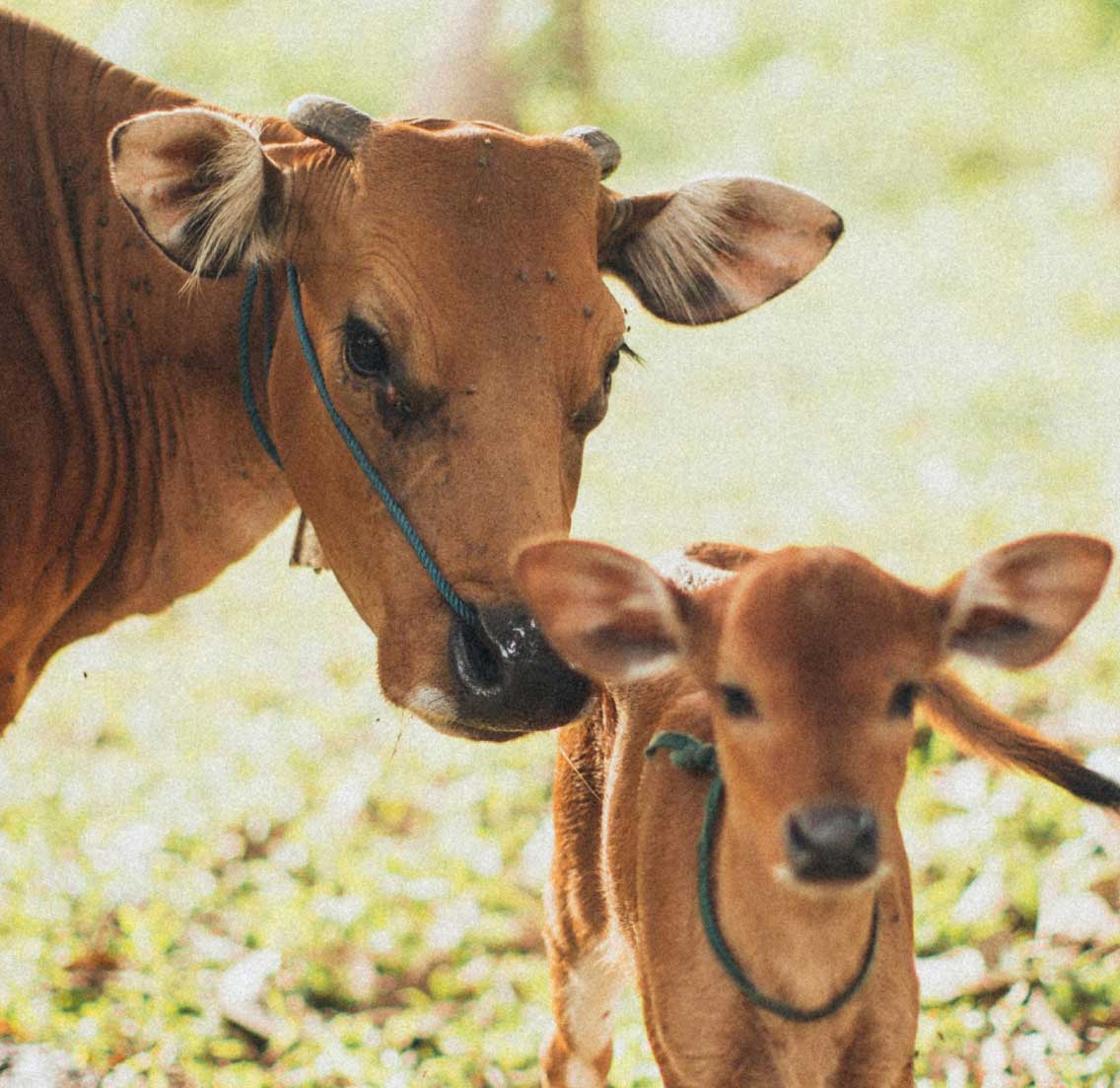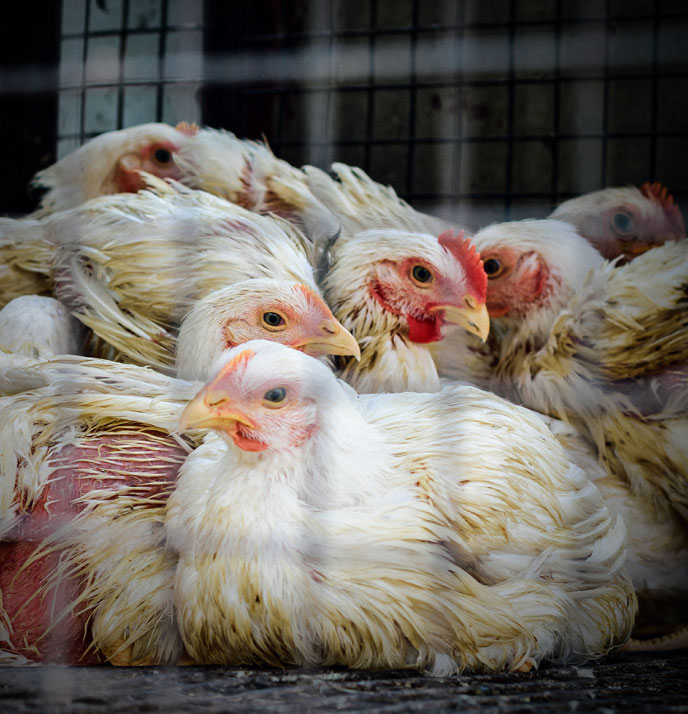
Chickens on many industrial poultry farms are trapped in a life of misery from the moment they hatch.
Packed by the thousands into filthy, overcrowded shed, many birds are forced to stand in their own waste, leading to burns on their feet and chest. The ammonia from the waste fills the air, making it hard for birds to breathe, leaving many with painful respiratory issues.
On farms that supply companies that do not care about the Five Freedoms and animal welfare, chickens are bred to grow so unnaturally fast that their bodies balloon to sizes their bones cannot support. With legs buckling under their own weight they often collapse, unable to reach food or water.
Many die from heart failure or skeletal disorders before they can even be sent to slaughter.
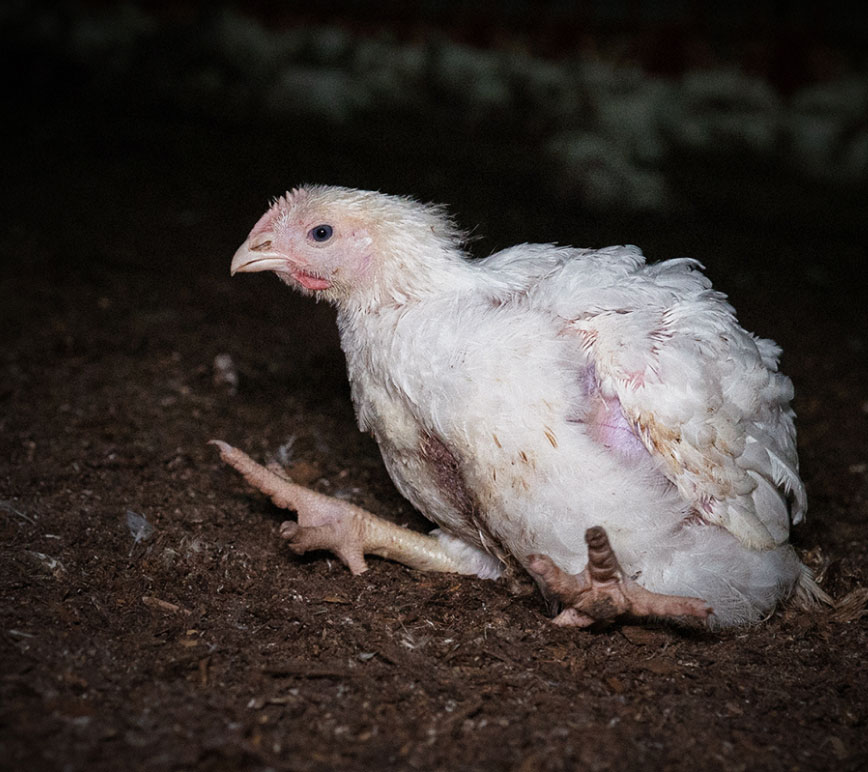
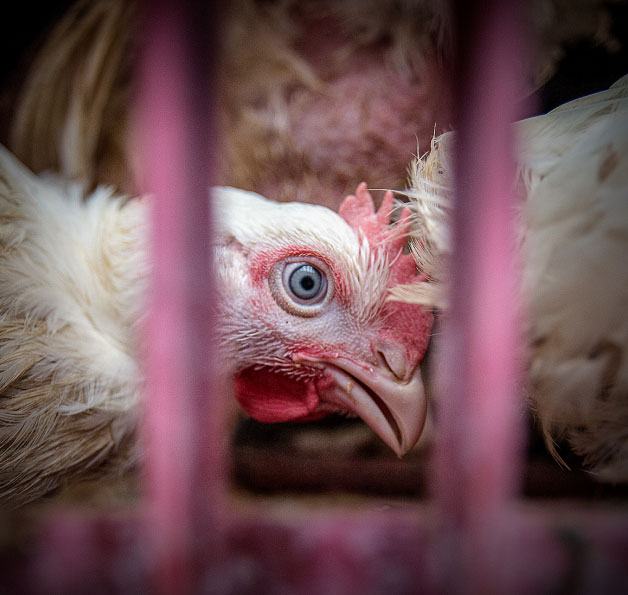
But for those that make it, the suffering only intensifies. Roughly handled and thrown into transport crates, chickens are often injured before they even reach the slaughterhouse. Many are still conscious when their throats are slit, left to bleed out in agony.
Their last moments are filled with fear, pain, and a complete absence of compassion.
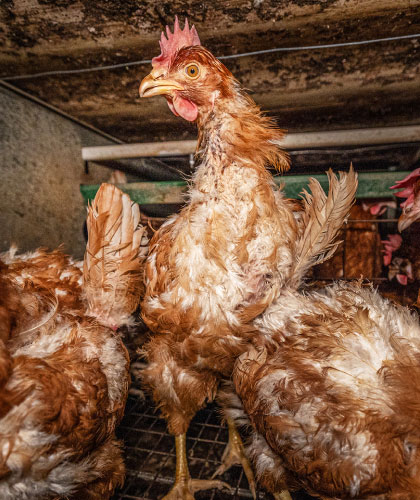
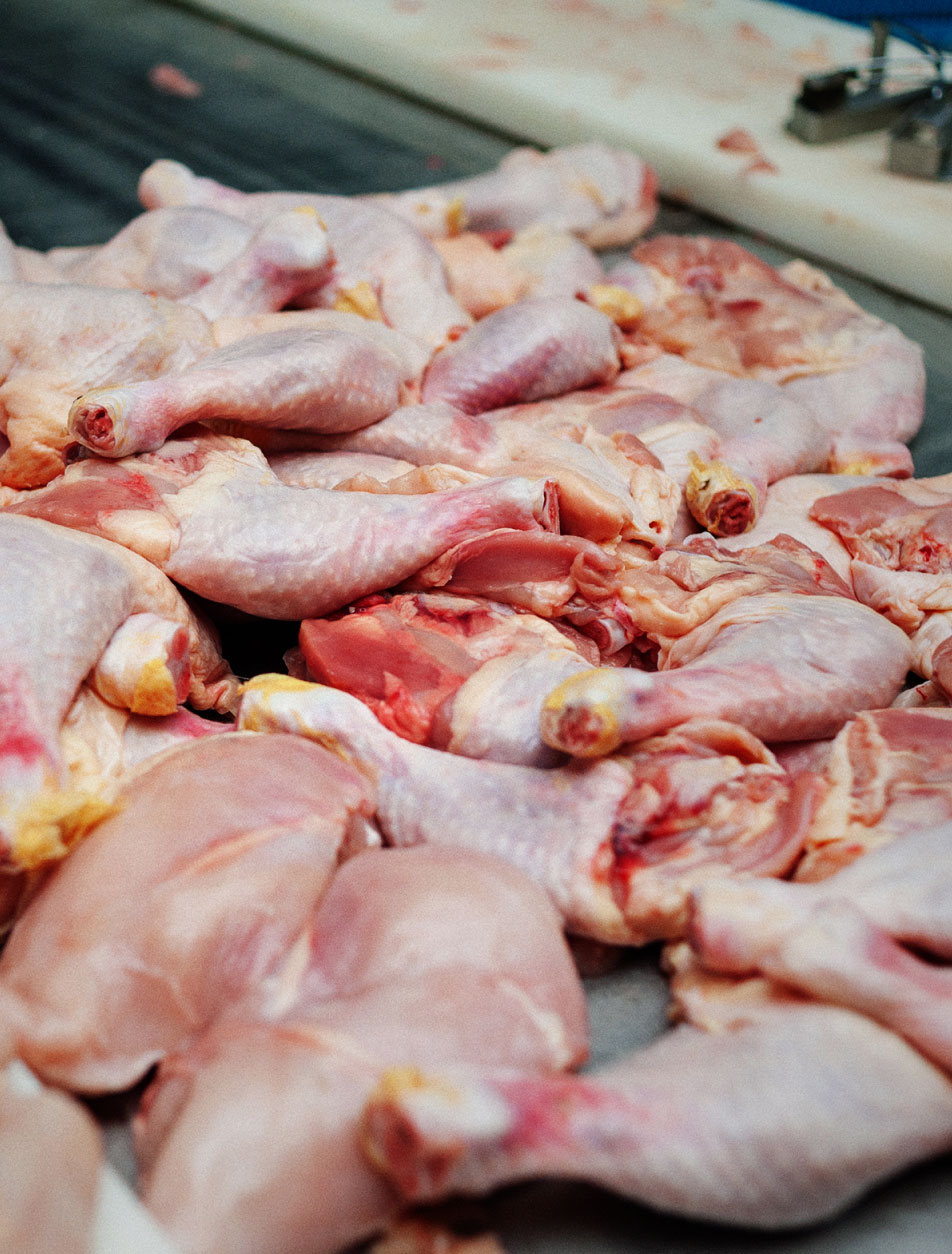
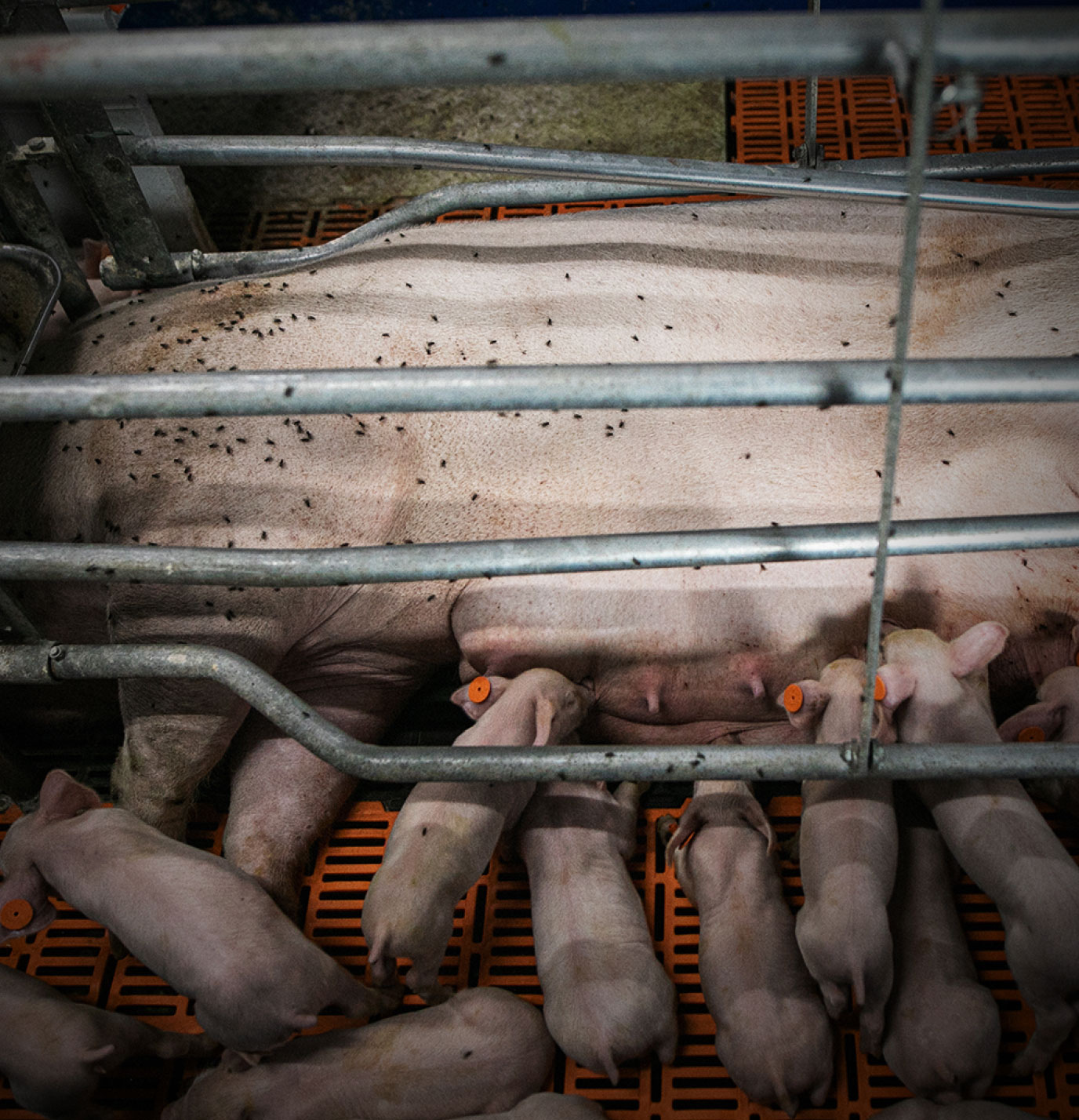
Mother pigs on farms that don’t apply the Five Freedoms standards endure unimaginable torment. Confined for nearly their entire lives in tiny gestation crates, they are unable to turn around or even lie down comfortably.
These intelligent, social animals are reduced to living in cold metal cages, standing on hard, slatted floors covered in their own waste. Their bodies become sore and bruised from the relentless confinement, with nothing to ease their physical agony or mental anguish.
On pig farms like these, tail docking and teeth clipping are routinely performed without anesthesia, leaving pigs writhing in pain as their bodies are mutilated.
At slaughter, many pigs are improperly stunned and remain conscious while they are butchered, thrashing in fear and pain as their lives are brutally cut short.
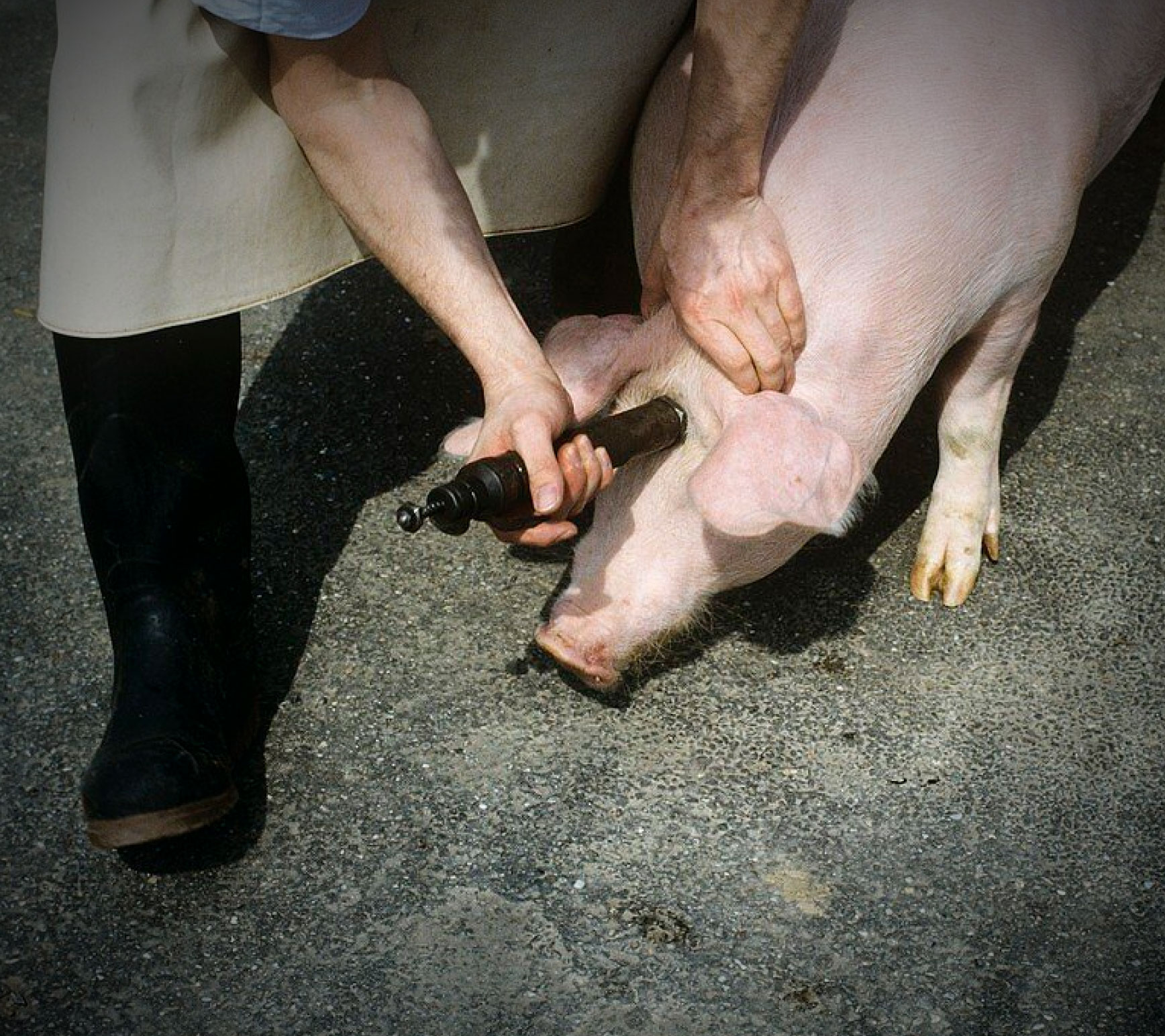
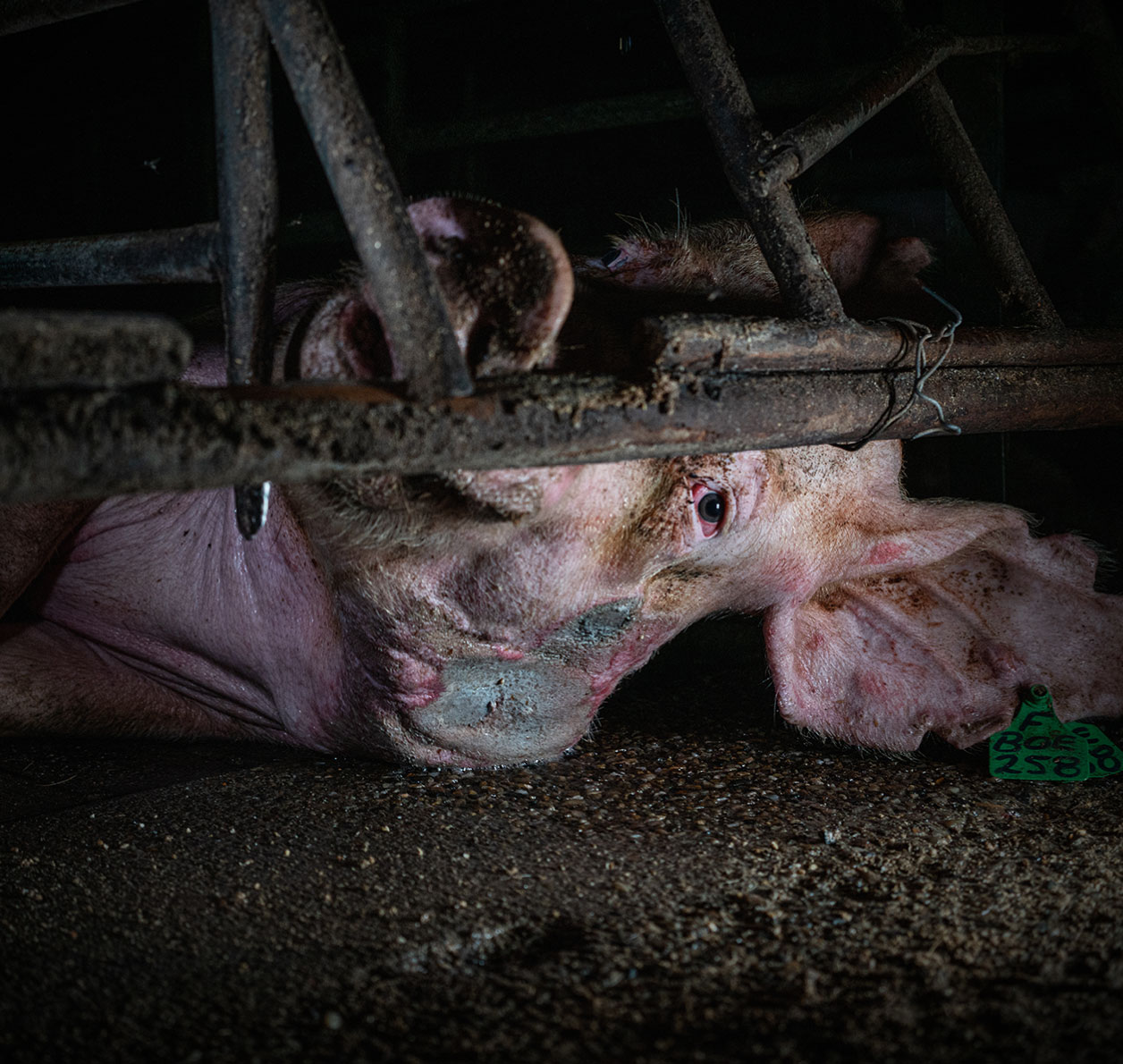
The emotional toll is just as severe. Pigs are highly social and intelligent, capable of forming bonds and experiencing emotions.
Pigs in farms like these are denied everything that makes life worth living, just so the companies can save a few pennies.
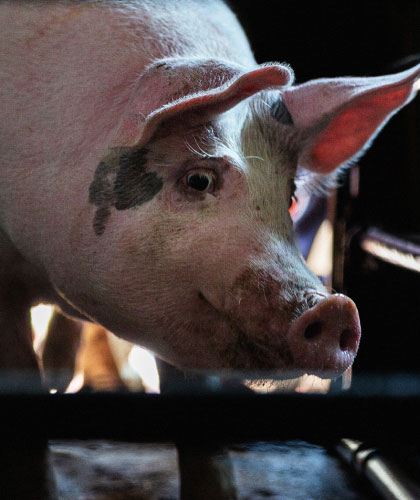
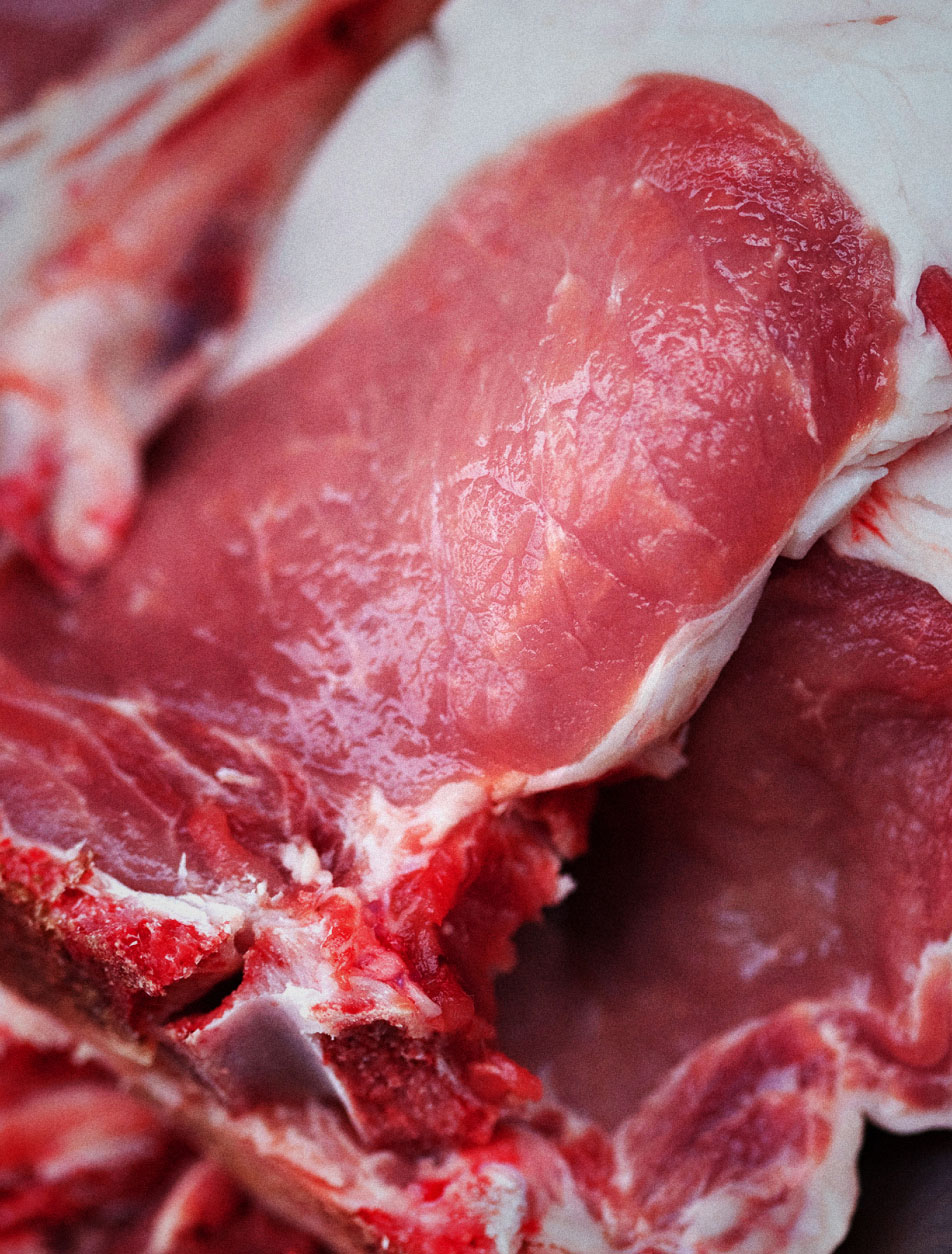
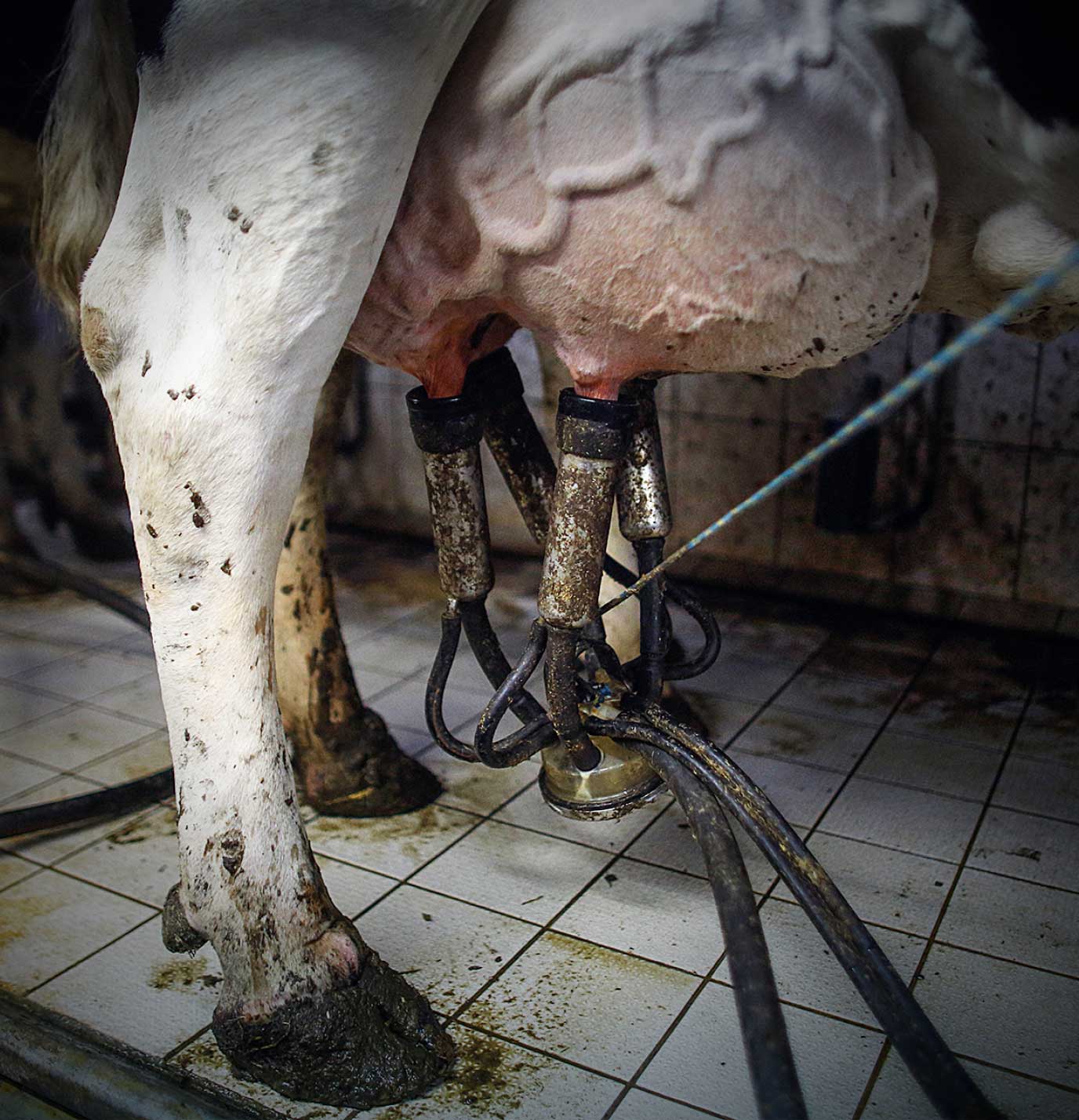
Hooked to milking machines day after day, dairy cows in supply chains of the companies that violate the Five Freedoms are pushed to the limit.
This often results in agonizing infections like mastitis where their swollen udders become inflamed from overmilking.
Companies allow dairy cows in their supply chains to be subjected to tail docking and dehorning, brutal procedures often performed without any anesthesia, leaving them to suffer in silence.
Cows can also be tied by the neck in one spot all day, preventing them from turning, walking around, or exhibiting other natural behaviors.
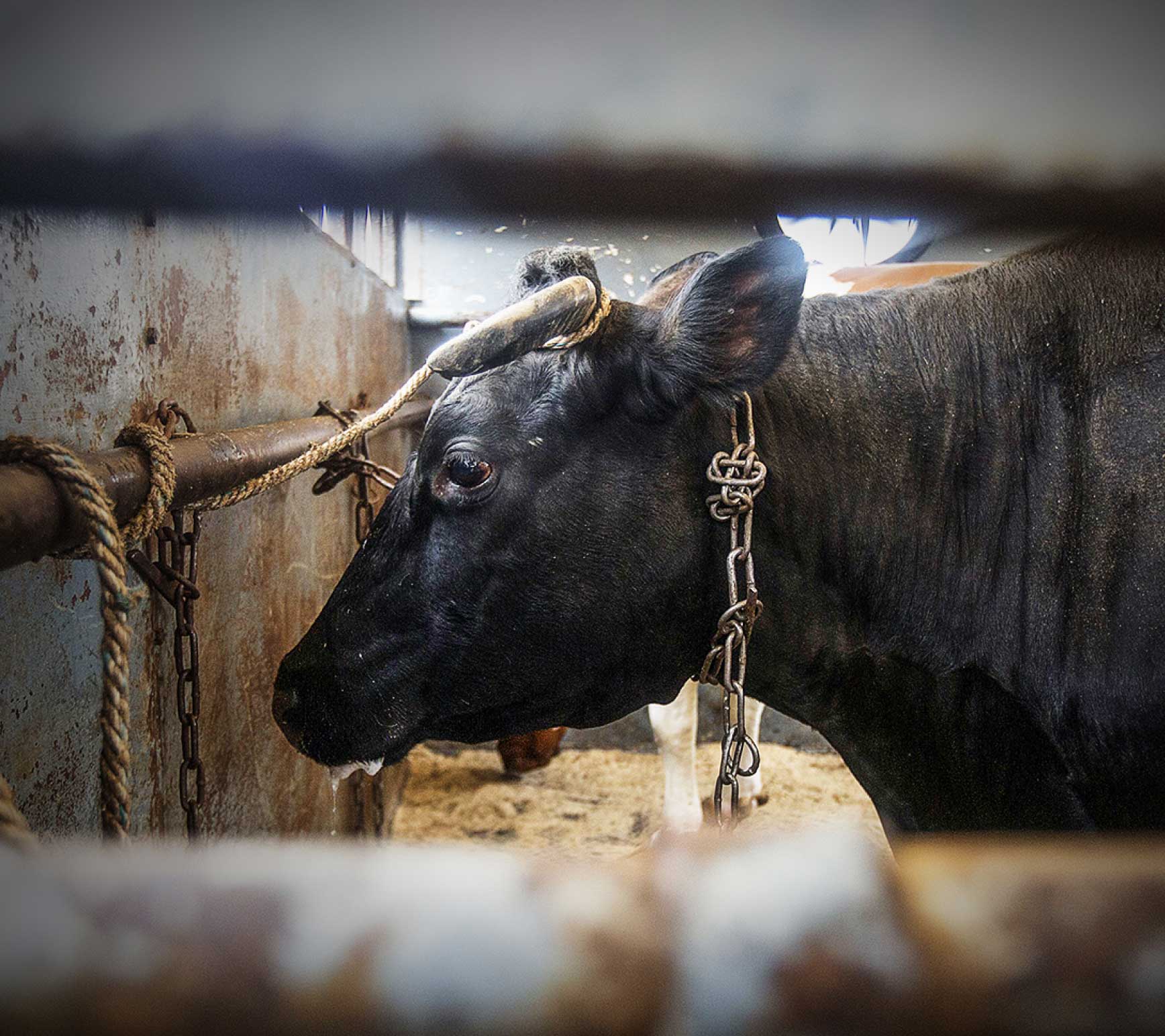
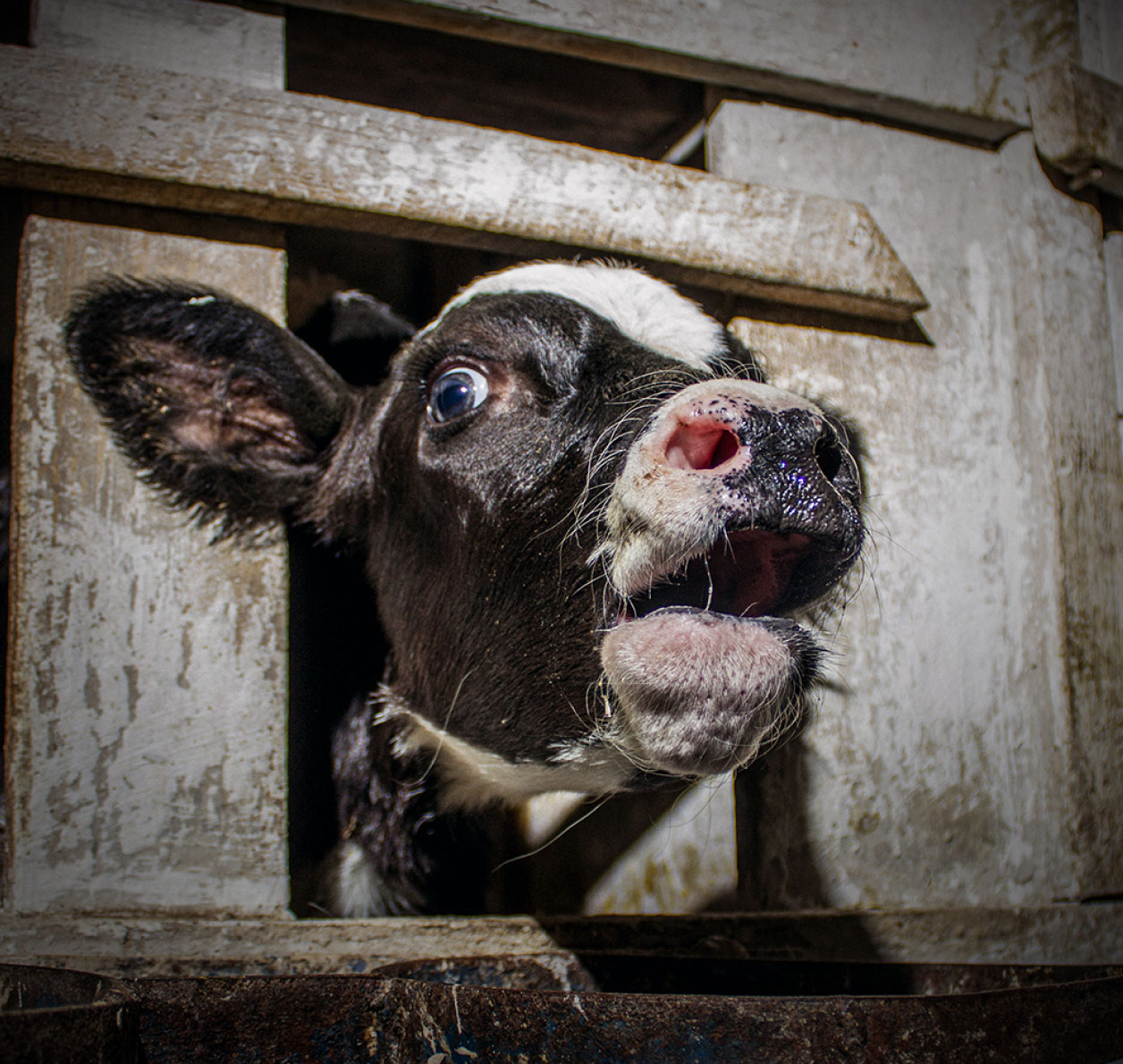
On many farms, shortly after birth babies are torn away from their mothers and crammed into veal crates or chained by the neck in veal pens until the day they are killed. Many companies have no policy barring this despicable practice from their supply chain.
But perhaps the most heartbreaking cruelty is the treatment of baby calves….
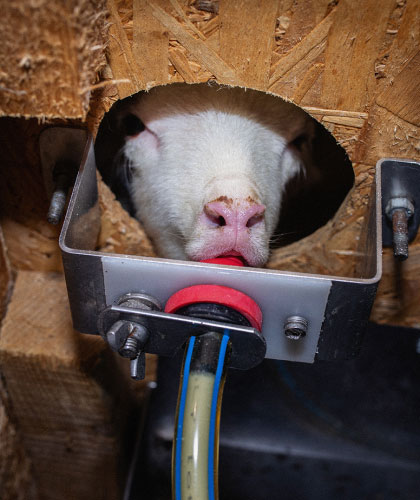
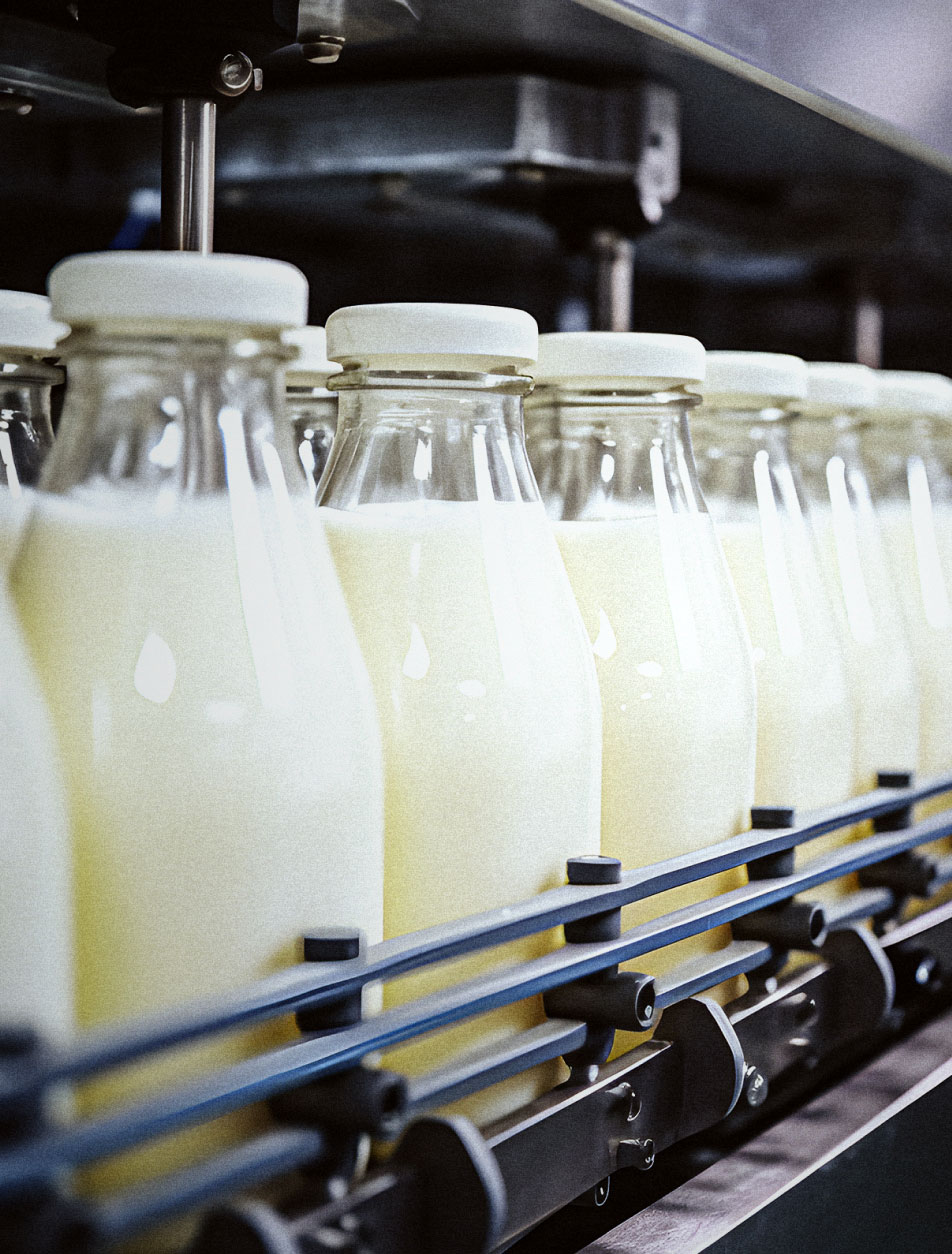
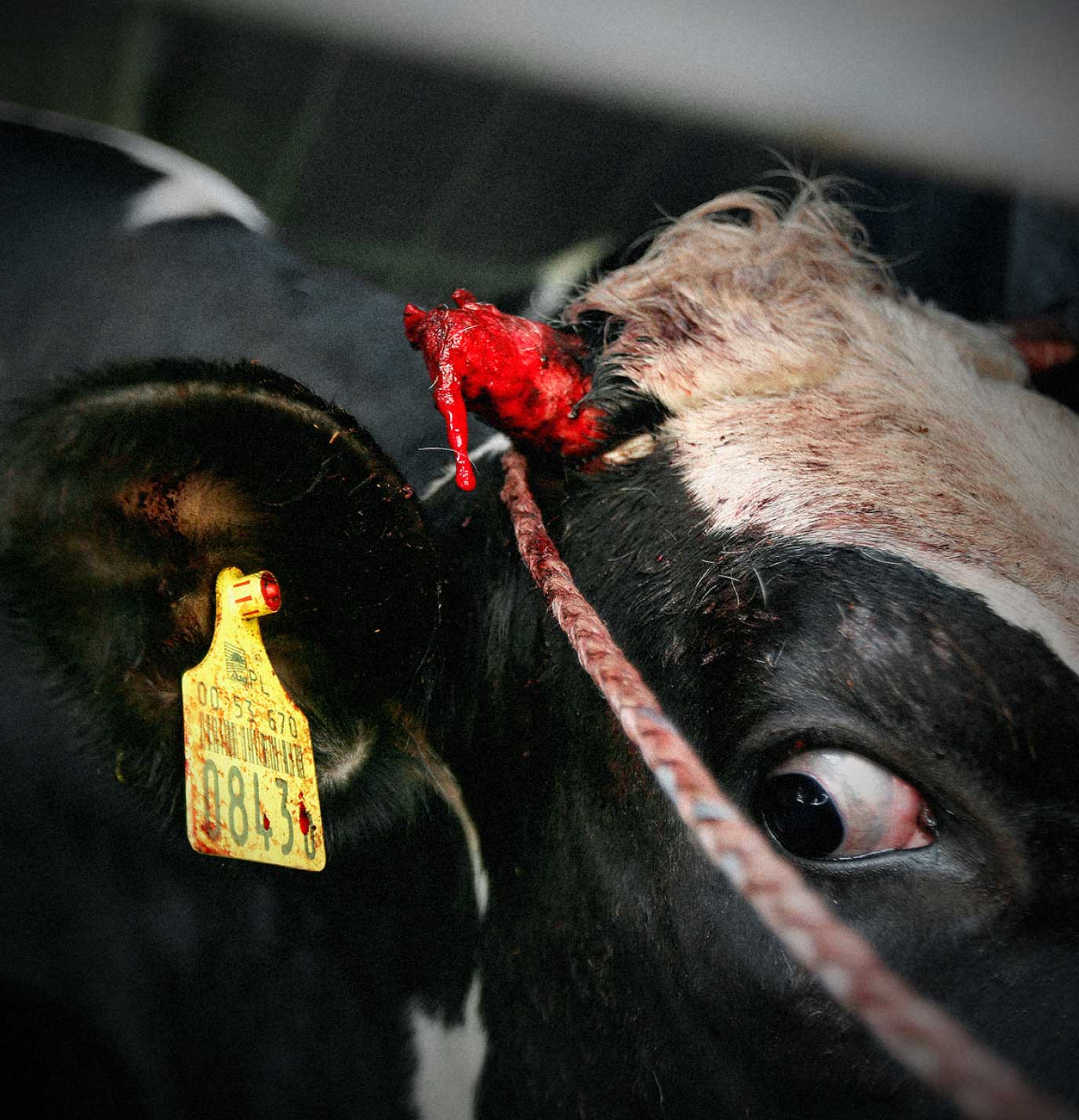
On farms that supply many companies with beef, producers are allowed to carry out painful mutilations such as dehorning, where cattle’s horns are sawed or burned off without anesthesia. Even more complicated procedures, such as castration, are also performed without anesthesia.
The pain can be excruciating, and can lead to infection and chronic long-term pain.
In addition to these painful procedures, cattle are often confined to overcrowded feedlots with little space to move, which can cause immense stress and physical suffering.
They are denied access to pasture and natural behaviors, further exacerbating the cruelty they endure.
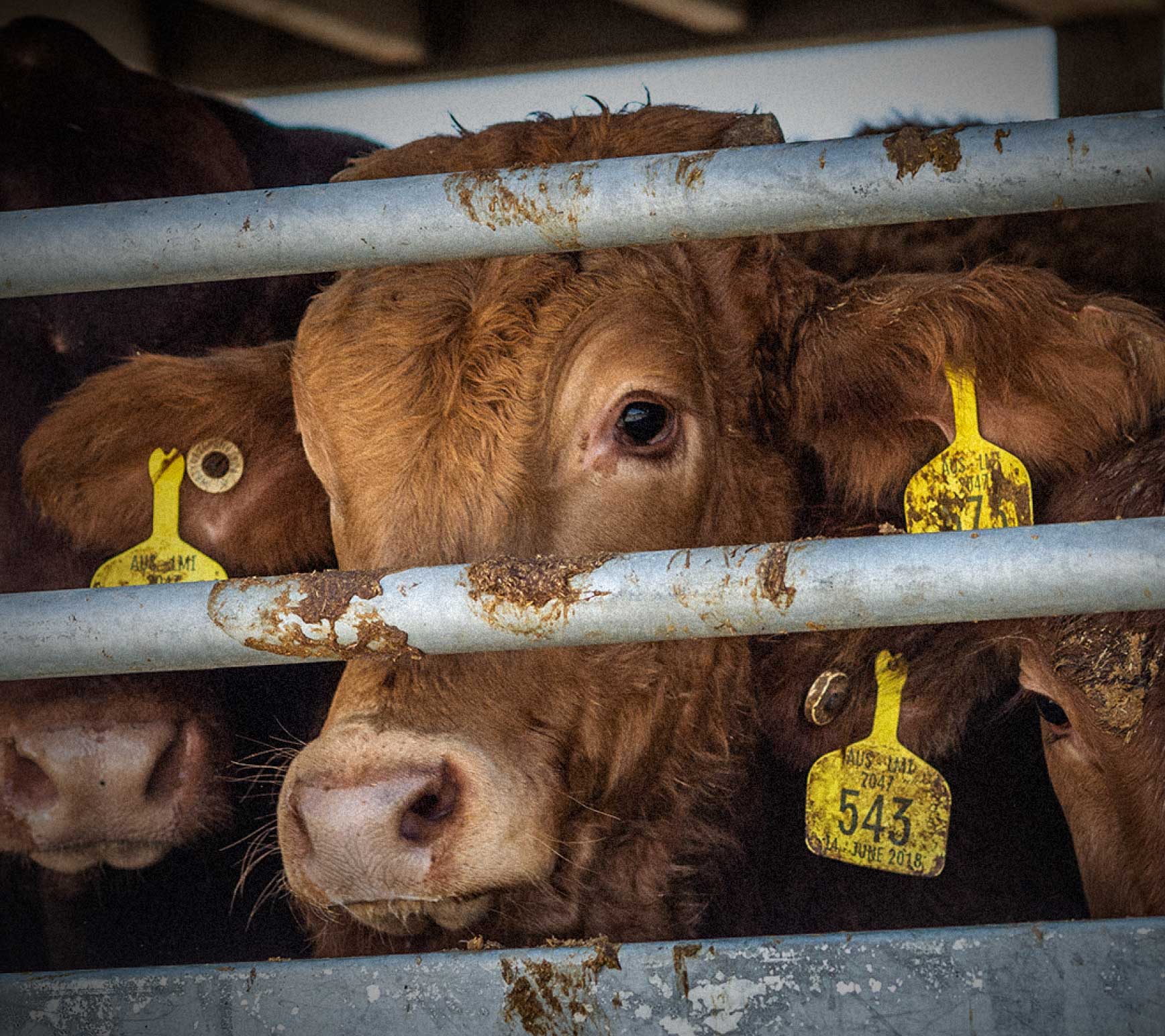
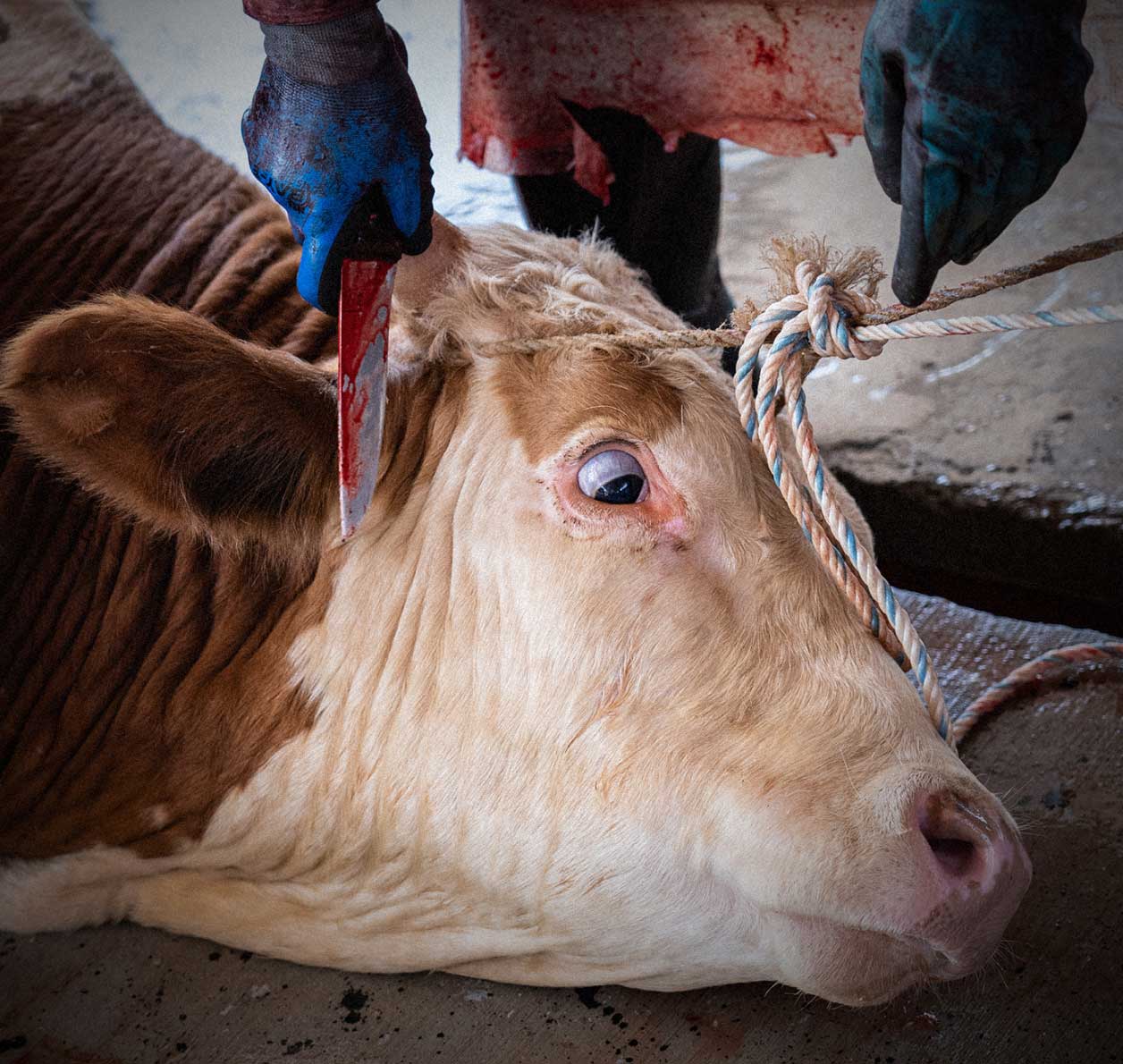
The harsh conditions, combined with a lack of proper care, make their lives unbearable from the moment they are born until they are sent to slaughter.
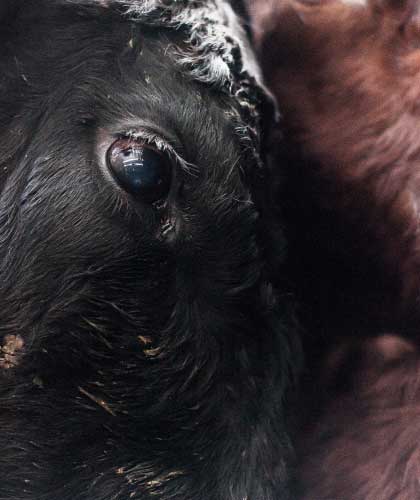
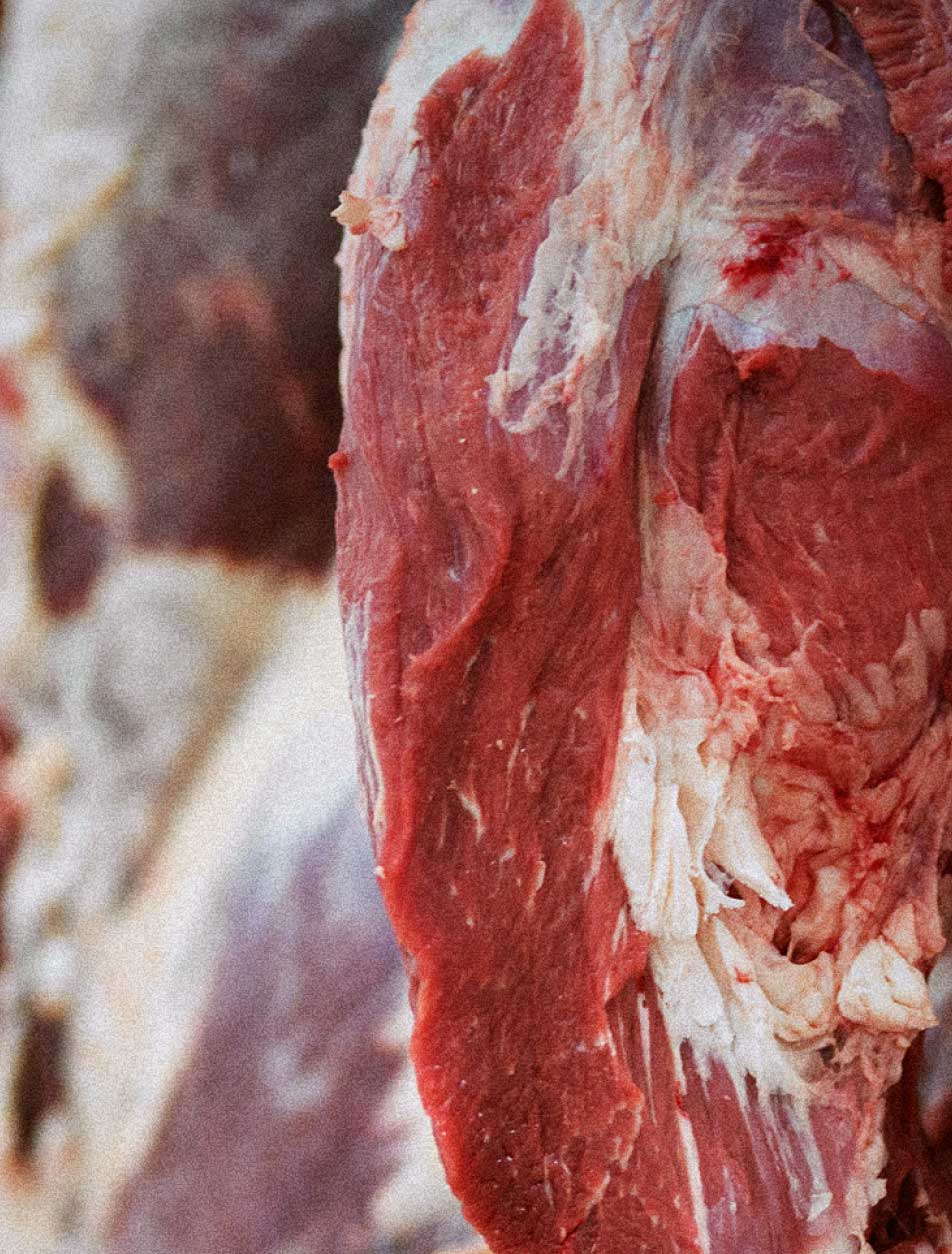
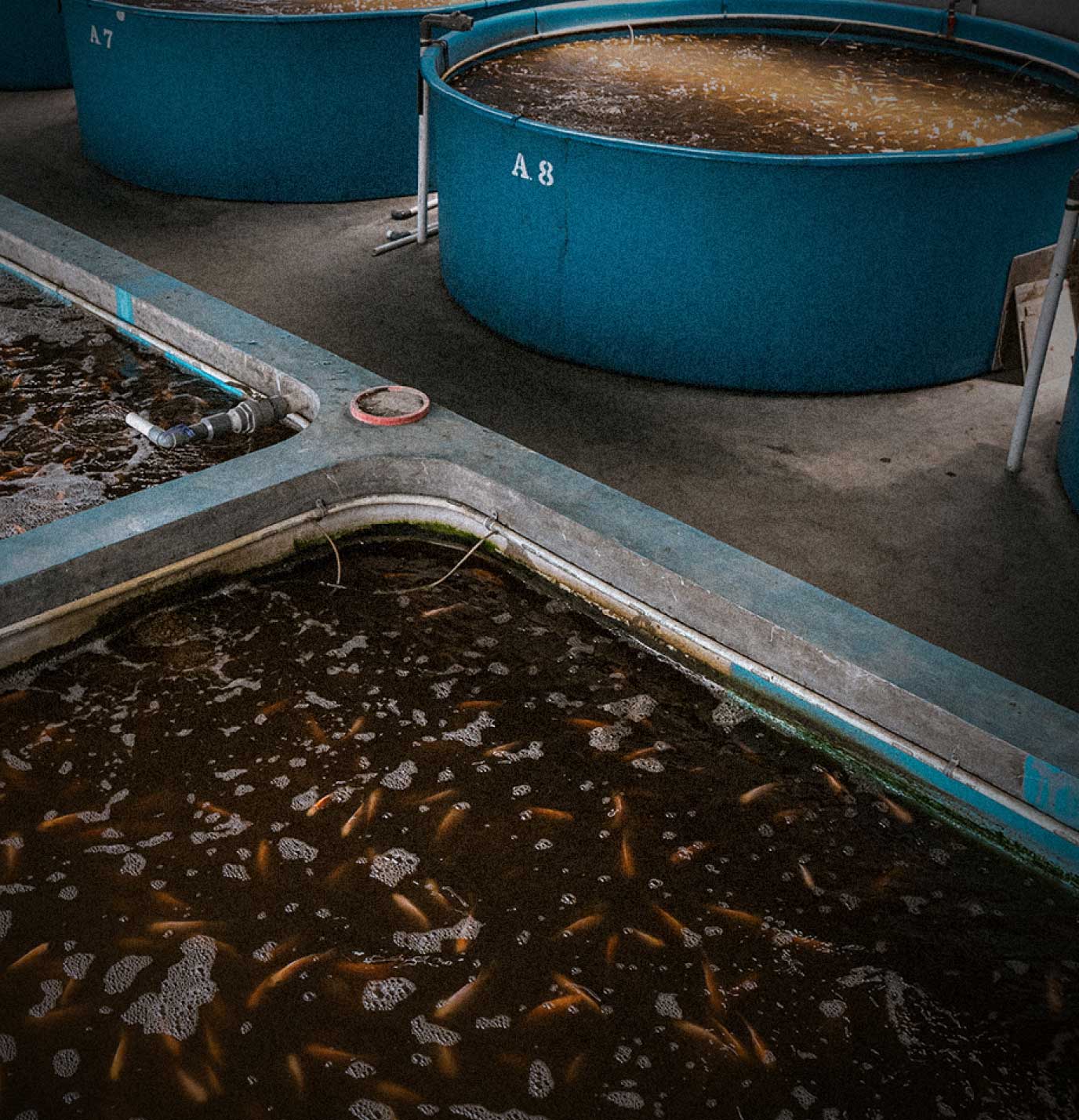
Fish and crustaceans in irresponsible companies’ supply chains face a brutal existence. At factory farms of their seafood suppliers, animals are packed into overcrowded, filthy waters.
Their bodies are often riddled with deformities and open sores from sea lice and other irritants. Disease runs rampant, with a large percentage of animals suffering to death from disease before even making it to slaughter.
Disease is allowed to run rampant, with a large percentage of animals suffering to death from disease before even making it to slaughter.
The slaughter process is no less horrific. Many companies allow their seafood suppliers to kill animals in the most brutal ways possible, including cutting them open while alive and fully conscious, cooking them while alive and fully conscious, slowly asphyxiating them, or beating them to death.
Many companies allow their seafood suppliers to cut animals open while alive and fully conscious, cook them alive, and beat them to death.
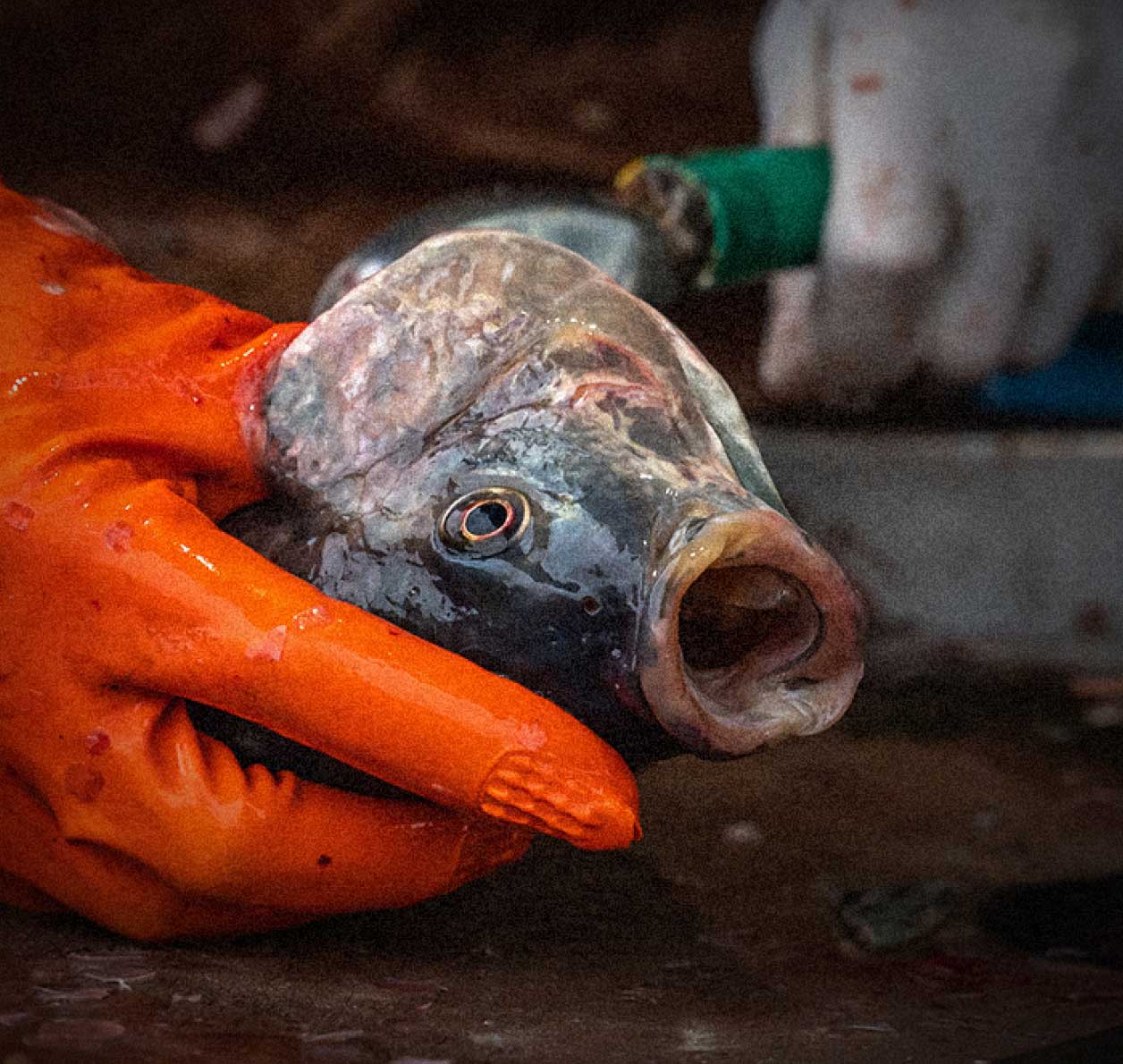
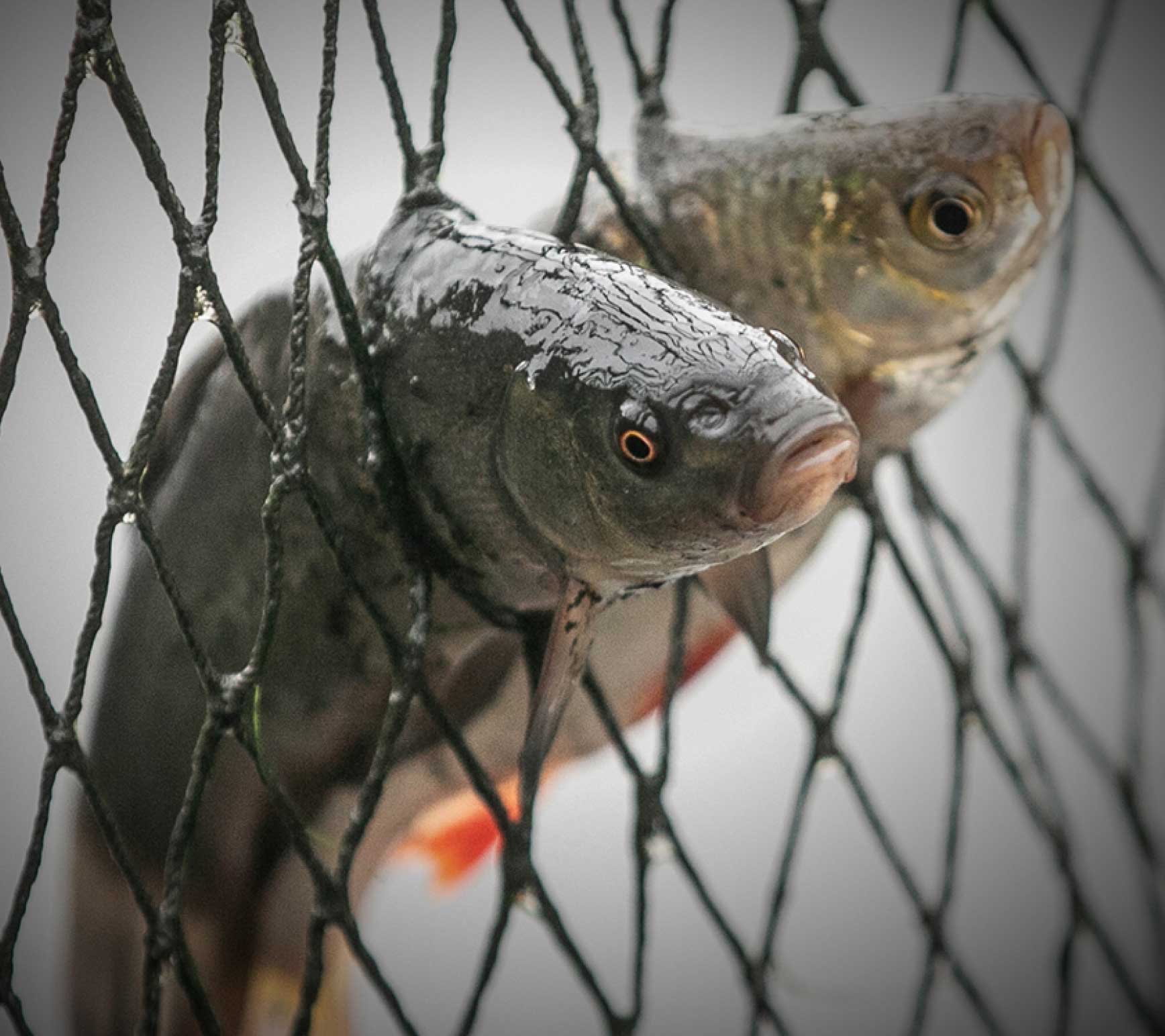
Wild-caught fish in companies’ supply chains face similar cruelty. Methods such as trawling and longlining can kill large numbers of bycatch animals, damage local ecosystems, and lead to painful and prolonged suffering as animals linger for days jammed in nets or dangling on hooks.
Large number of companies have no public policy prohibiting cruel and devastating capture methods from being used.
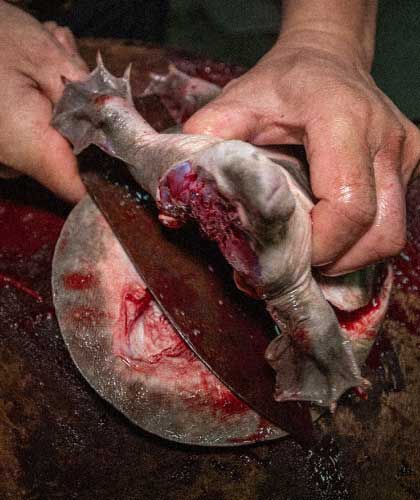
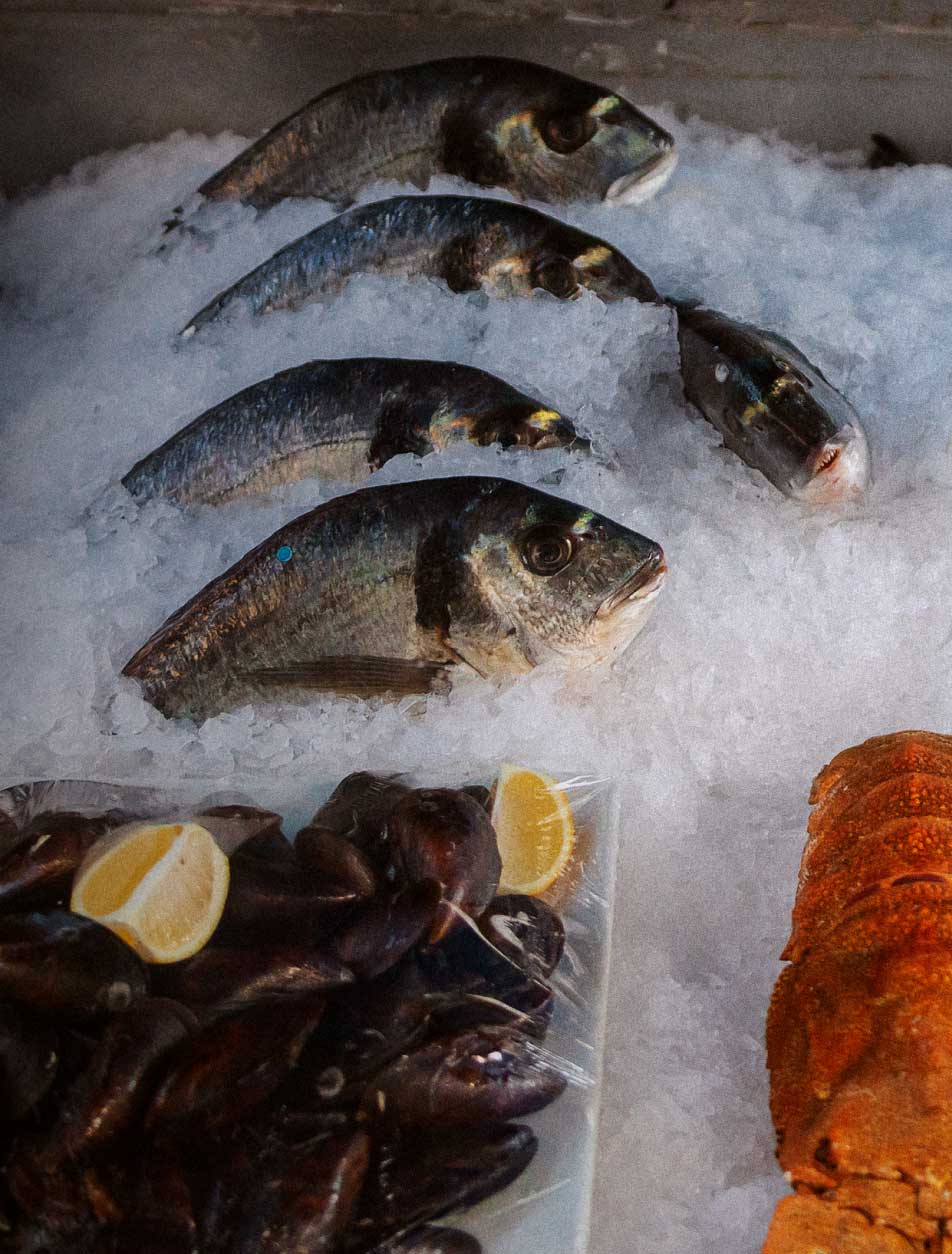
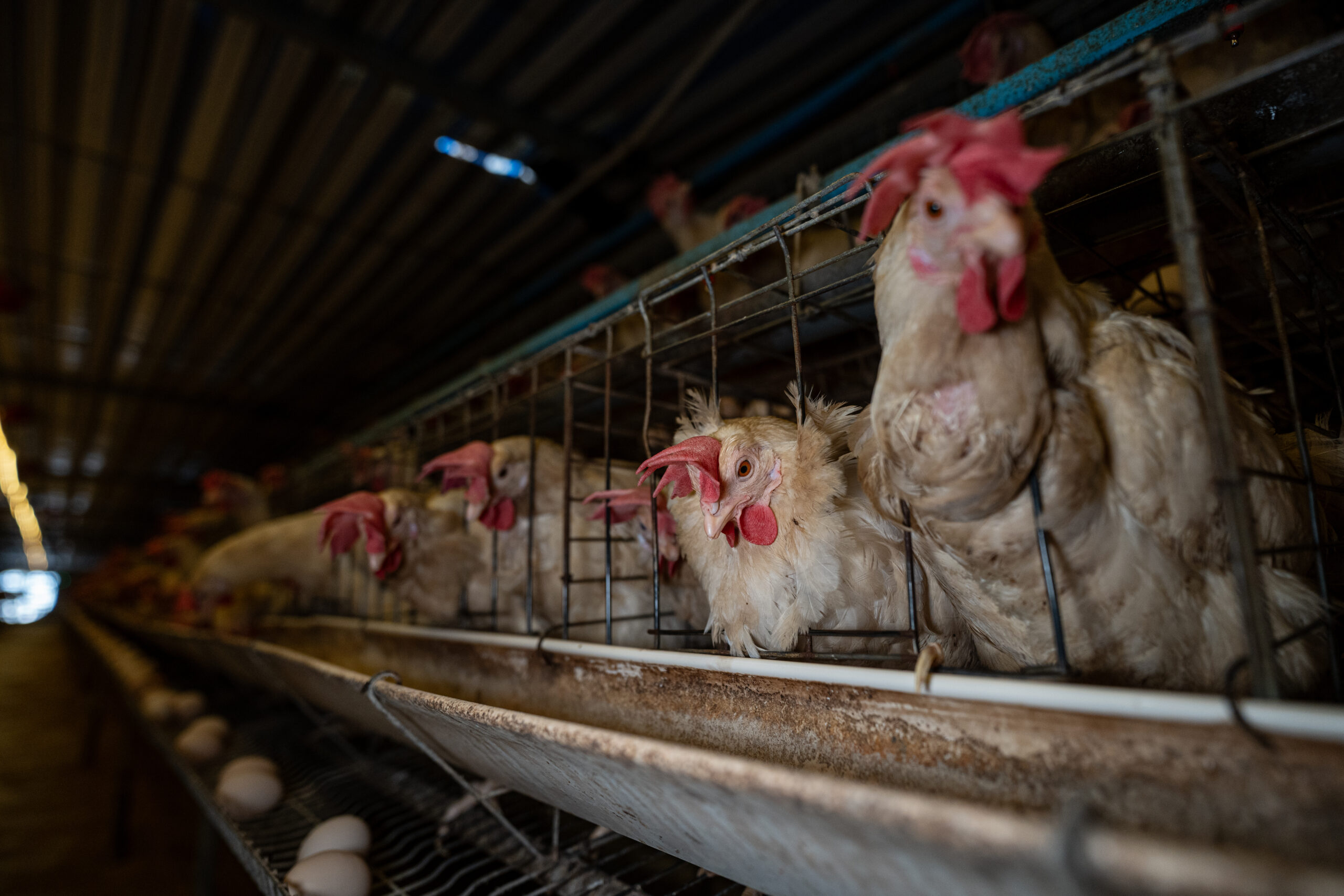
Behind the eggs served by many companies in the food industry lies a grim reality of suffering. Hens are crammed into tiny, barren battery cages so restrictive that the birds can’t spread their wings, turn around, or exhibit any of their natural behaviors.
These sentient animals are reduced to mere egg-laying machines, enduring a lifetime of misery standing on wire floors that can cut into their feet and leave their bodies bruised and featherless. Packed so tightly, hens often injure each other out of stress and frustration.
Even the basics of life are denied. With no access to dust bathing, perches, or fresh air, these intelligent and curious animals are trapped in a world devoid of stimulation and comfort.
The stress and overcrowding can lead to severe health issues, including brittle bones that fracture easily and uterine prolapse from the relentless egg production. Many hens die in their cages, their decomposing bodies left among the living until workers remove them.
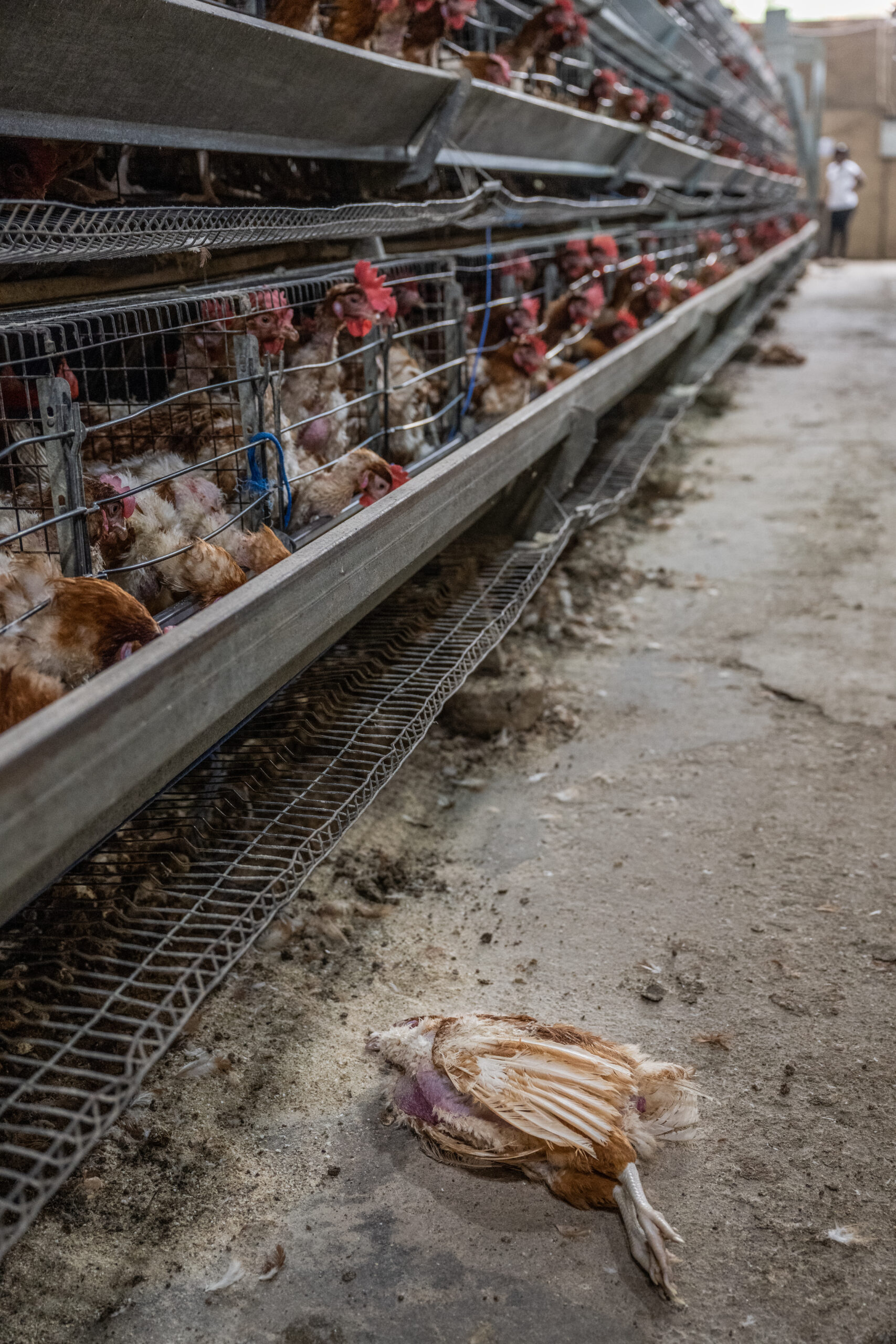
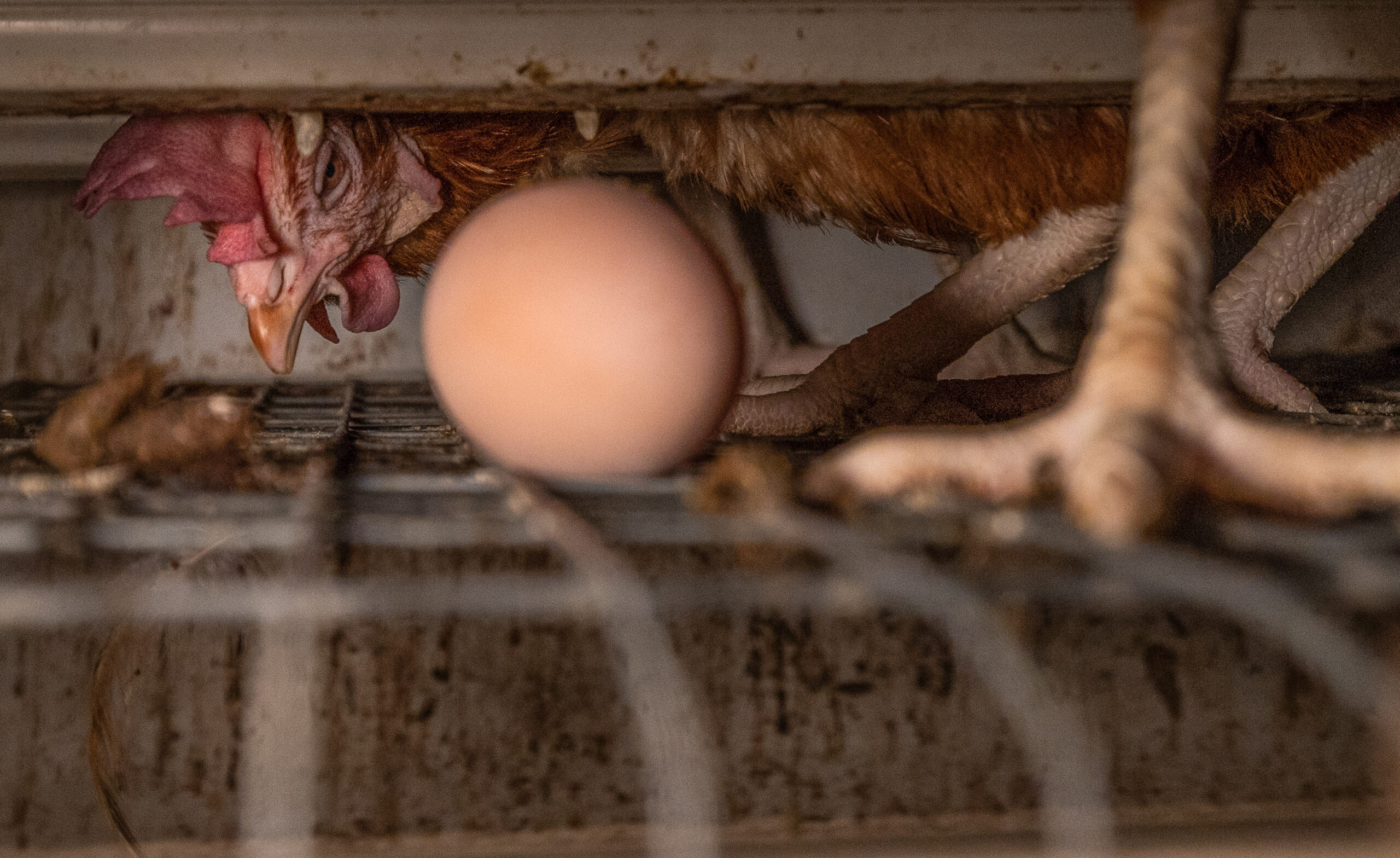
In this system, nearly every one of the Five Freedoms is breached: hens are denied freedom from discomfort, freedom from pain, injury, and disease, freedom to express normal behavior, and freedom from fear and distress.
Yet many companies still permit their suppliers to continue using these barbaric systems.
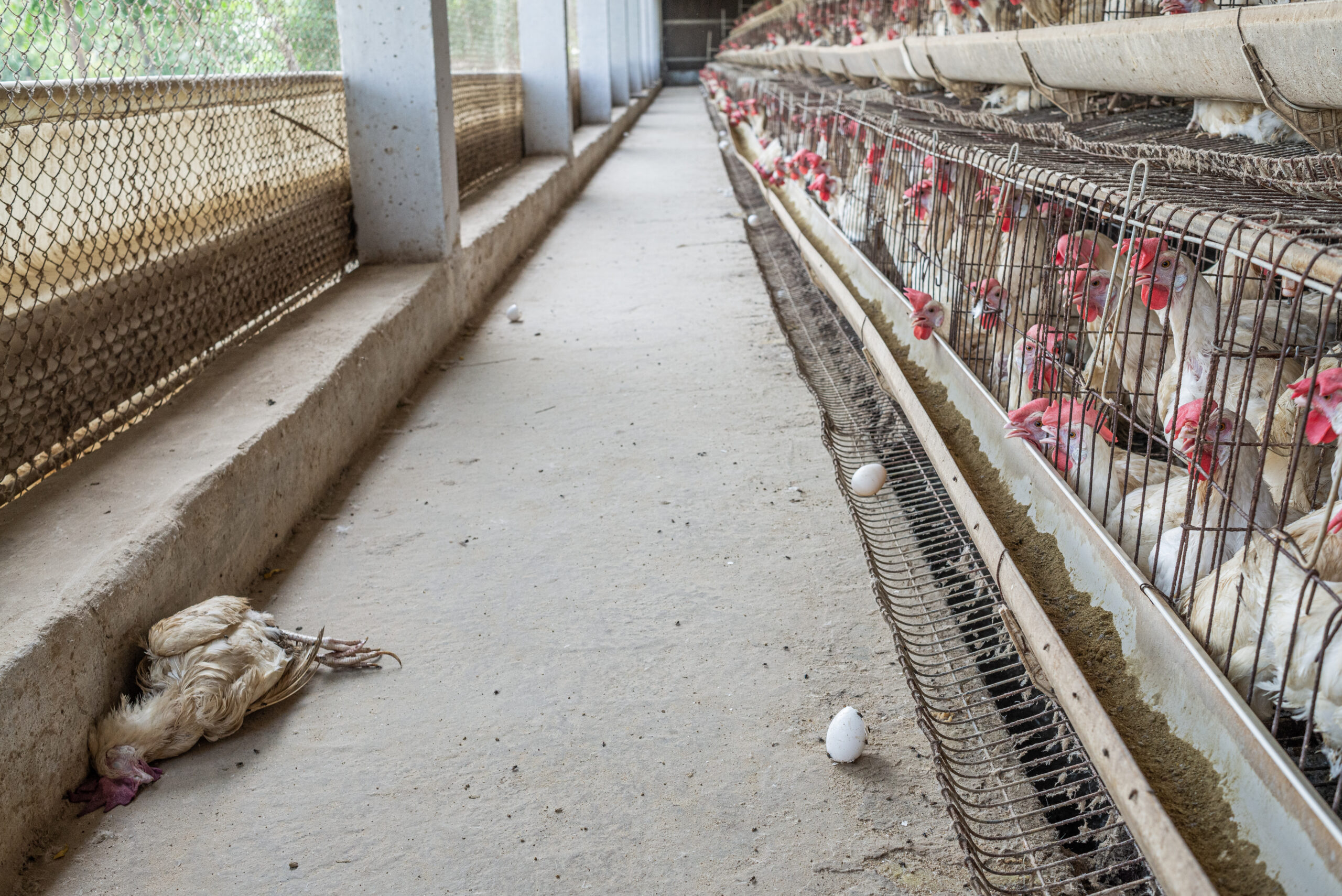
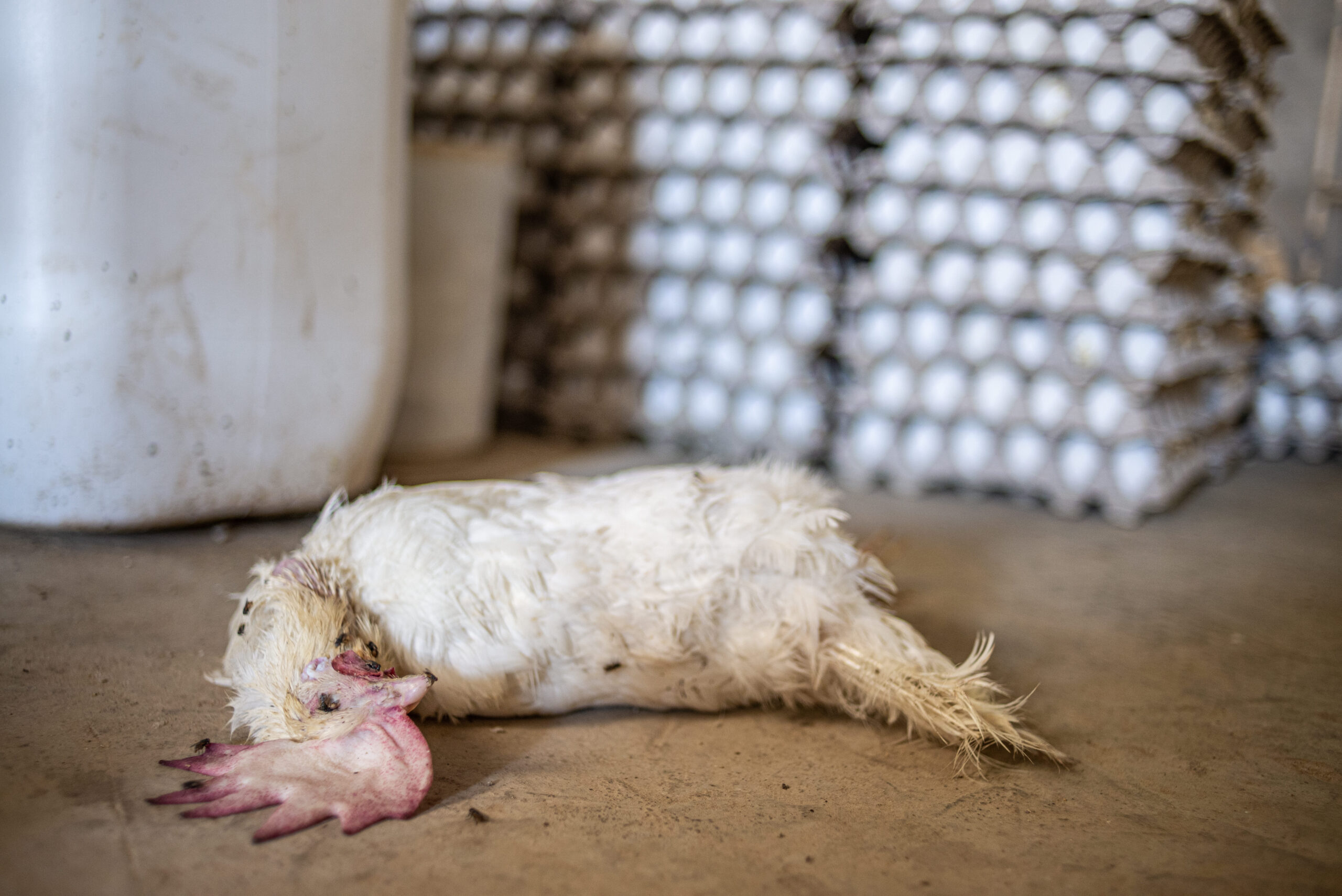
the Five Freedoms
for All Animals
